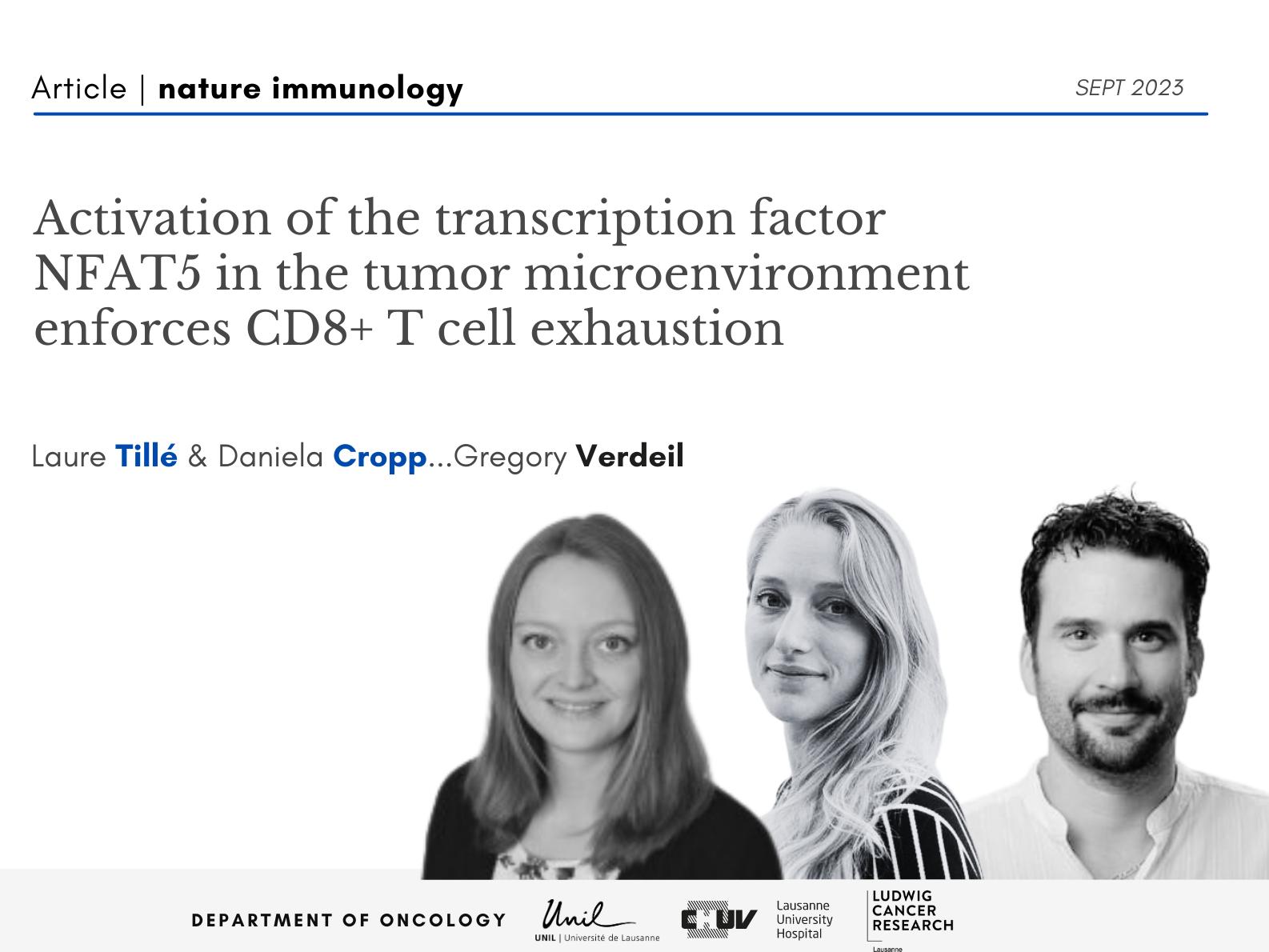
Biologie
The tumor microenvironment governs T cell fate
Continuous exposure to harmful substances during long-lasting infections or cancer can lead to a weakened state in the immune cells that are supposed to fight against these threats. This weakened state is called "exhaustion." Interestingly, the processes causing this exhaustion seem to be similar in both infections and cancer, even though the conditions are different.

This study*, published in Nature Immunology, was directed by Dr Gregory Verdeil, head of the Regulation of immune dysfunction in cancer lab, part of the Lausanne Branch of the Ludwig Institute for Cancer Research, in the Department of oncology UNIL-CHUV.
This work focused on a specific molecule called NFAT5, which controls the expression of certain genes. It was discovered that NFAT5 is highly expressed in immune cells, specifically the CD8+ T cells, that become exhausted during chronic infections and cancer.
When researchers increased the levels of NFAT5 in CD8+ T cells, the cells became less effective at controlling tumors. Conversely, when NFAT5 was removed, the immune cells performed better at fighting tumors. Interestingly, these improved cells had lower levels of proteins associated with exhaustion and produced more helpful substances that aid in fighting cancer. Surprisingly, NFAT5's role was limited to cancer situations. It did not contribute to T cell exhaustion during infections. The reason for that is that the activity of NFAT5 was only switched on by the unique conditions of the tumor environment but not during chronic infection.
In essence, this study demonstrates that NFAT5 plays a crucial role in weakening immune cells in cancer contexts. This knowledge brings scientists closer to finding ways to counteract this exhaustion, which could lead to more effective cancer treatments in the future.
The research was supported by the Lausanne University Hospital (CHUV), the University of Lausanne (UNIL), and generously funded by the Ludwig Institute for Cancer Research, the Swiss Cancer League, the Max Cloëtta foundation and the ISREC foundation.
* NFAT5 induction by the tumor microenvironment enforces CD8 T cell exhaustion


